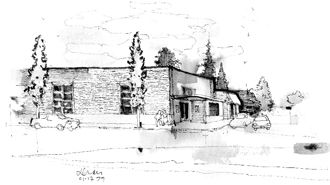Bankruptcy and Debtor's Rights
Financial stress is a common scenario across the United States today. Sometimes filing for bankruptcy is the right option to provide the debtor relief and a fresh start. Filing for bankruptcy can begin the process of rehabilitating your financial outlook.
You can count on our bankruptcy lawyers to accurately determine your eligibility and which chapter to file under the Bankruptcy Code: Chapter 7 or Chapter 13.
Chapter 7
A Chapter 7 bankruptcy is the most common type of bankruptcy filed by individuals. There are many ways it can alleviate financial distress.
Filing Chapter 7 bankruptcy can:
- Stop collection letters, phone calls, garnishment, lawsuits and other collection efforts.
- Temporarily suspend a foreclosure on a home.
- Begin using your exempt assets and new income to pay for your new living expenses rather than interest on debts.
- Permanently discharge qualifying consumer debts (credit card debts, medical debts, etc.)
It's important to be aware of the natural consequences of filing Chapter 7 bankruptcy. These include but are not limited to:
- Your credit report will show your bankruptcy for 10 years.
- Some debts, such as certain tax debts, student loans, spousal/child support are often not dischargeable.
- If you have significant equity in valuable assets, you will need to pay the trustee money to retain those assets.
- A discharge may not be available if you filed for Chapter 7 bankruptcy within the previous 8 years.
Chapter 13
A Chapter 13 bankruptcy allows individuals with regular income to prepare a plan - subject to approval by the court - to repay all or part of their debts.
There are many advantages to this option. Filing Chapter 13 bankruptcy can:
- Stop collection letters, phone calls, garnishment, lawsuits and other collection efforts
- Stop foreclosure proceedings and obtain time to catch up on past due mortgage payments
- Lower or eliminate payments for debts; extend time to repay; reduce interest;
- Consolidate unsecured debts in one simple payment;
- Protect co-signors and others who are also responsible for consumer debts;
- Get an opportunity for a fresh start.
Like Chapter 7 bankruptcy, there are repercussions to filing Chapter 13 bankruptcy. These may include:
- Paying back some portion of your unsecured debts over the life of the plan.
- Waiting 3-5 years for full recovery.
- Repaying some debts in full, such as: taxes, child support, spousal support, and student loans.
Our firm can determine your eligibility to file for relief under different chapters of the Bankruptcy Code and guide you throughout the process.
Don't wait another day to obtain knowledgeable advice from a bankruptcy attorney. Contact our firm to set an appointment with Attorney Richard Brown. Richard Brown has practiced law since 2006.
Disclaimer: Brown, Tarlow, Bridges & Palmer is a debt relief agency. We help people file for relief under the Bankruptcy Code.


